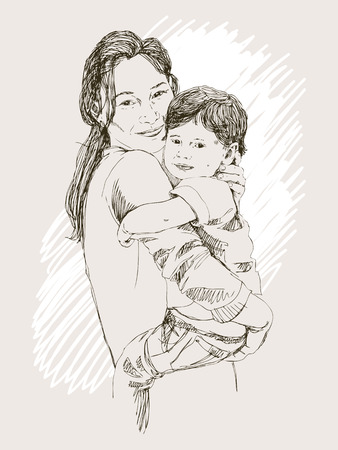1. Back Pain and Pelvic Discomfort
Many women experience back pain and pelvic pressure as the baby grows and shifts downward. This discomfort can make everyday activities more challenging, but there are ways to find relief.
Why It Happens
As your baby gets bigger, your center of gravity changes, putting more strain on your lower back and pelvis. Additionally, hormonal changes loosen ligaments and joints in preparation for labor, which can contribute to discomfort.
Ways to Find Relief
There are several strategies that can help alleviate back pain and pelvic discomfort during the third trimester:
| Relief Method | Description |
|---|---|
| Practice Good Posture | Keep your shoulders back and avoid slouching. When sitting, use a supportive chair with a pillow behind your lower back. |
| Use a Pregnancy Support Belt | A maternity belt can provide extra support for your belly and reduce strain on your lower back. |
| Engage in Prenatal Stretches or Yoga | Certain stretches and prenatal yoga poses can help relieve tension and improve flexibility. |
| Sit and Sleep Comfortably | Sit with a pillow supporting your lower back and sleep with a pregnancy pillow between your legs for better spinal alignment. |
| Apply Heat or Cold Therapy | A warm compress or heating pad on the lower back can help soothe sore muscles, while an ice pack may reduce inflammation. |
| Avoid Standing Too Long | If you need to stand for extended periods, take breaks to sit down and rest whenever possible. |
When to Call Your Doctor
Mild discomfort is normal, but if you experience severe pain, sudden swelling, or difficulty walking, contact your healthcare provider to rule out any complications.
2. Frequent Urination and Bladder Pressure
With the baby pressing on the bladder, frequent trips to the bathroom become a common part of the third trimester. As the uterus expands, it puts added pressure on the bladder, reducing its capacity to hold urine. This can lead to more frequent urination during the day and even disrupt sleep at night.
Why It Happens
Frequent urination is primarily caused by the growing baby’s position in the pelvis. As your due date approaches, the baby often moves lower into the birth canal, increasing bladder pressure even more. Hormonal changes also play a role by increasing blood flow to the kidneys, which leads to increased urine production.
How to Find Relief
While this symptom can be frustrating, there are ways to manage it effectively:
| Strategy | Description |
|---|---|
| Stay Hydrated | Avoiding fluids isn’t the solution—staying hydrated is essential for both you and your baby. However, try limiting fluids an hour or two before bedtime to reduce nighttime trips to the bathroom. |
| Practice Pelvic Floor Exercises | Kegel exercises help strengthen pelvic floor muscles, improving bladder control and reducing leaks. |
| Lean Forward When Urinating | Slightly tilting forward while using the restroom can help empty your bladder more completely, reducing urgency. |
| Avoid Caffeine | Caffeinated drinks can act as diuretics, increasing urine production. Cutting back on coffee, tea, and soda may help decrease bathroom trips. |
| Create a Bathroom Schedule | If possible, try going to the restroom at regular intervals instead of waiting until urgency strikes. This may help train your bladder over time. |

3. Swelling in Feet and Ankles
Fluid retention can cause noticeable swelling in the feet, ankles, and even hands, especially as your pregnancy progresses. This is a common third-trimester symptom that can make walking uncomfortable and even cause tightness in your shoes.
Why Does Swelling Happen?
During pregnancy, your body produces more fluids to support your growing baby. Additionally, the pressure from your expanding uterus can slow down circulation, leading to fluid buildup in your lower extremities.
Ways to Reduce Swelling
Although swelling is normal, there are simple ways to manage it and find relief:
| Remedy | Description |
|---|---|
| Elevate Your Legs | Prop up your feet when sitting or lying down to help improve circulation and reduce swelling. |
| Wear Compression Socks | Compression socks provide gentle pressure that helps prevent fluid buildup in your legs and feet. |
| Stay Active | Avoid sitting or standing for long periods. Light activities like walking or stretching can help keep fluids moving. |
| Drink Plenty of Water | Staying hydrated helps flush excess fluids from your body and reduces water retention. |
| Avoid Excess Salt | A high-sodium diet can contribute to swelling. Try to limit processed foods and opt for fresh, whole foods instead. |
When to Call Your Doctor
Mild swelling is normal, but sudden or severe swelling—especially if its accompanied by headaches, vision changes, or pain—could be a sign of preeclampsia. If you notice any concerning symptoms, contact your healthcare provider right away.
4. Trouble Sleeping and Insomnia
As your due date approaches, getting a good nights sleep can become increasingly difficult. Hormonal changes, frequent trips to the bathroom, and general discomfort can make it hard to rest properly. If youre struggling with insomnia or restless nights, youre not alone—many moms-to-be experience sleep disturbances in the third trimester.
Why Sleep Becomes Difficult
Your body is going through significant changes that can interfere with sleep quality. Here are some common reasons why sleeping comfortably becomes a challenge:
| Cause | Description |
|---|---|
| Hormonal Changes | Increased progesterone levels can make you feel sleepy during the day but disrupt deep sleep at night. |
| Frequent Urination | The growing baby puts pressure on your bladder, making nighttime bathroom trips more frequent. |
| Body Discomfort | Back pain, leg cramps, and an expanding belly make finding a comfortable sleeping position difficult. |
| Heartburn | Acid reflux tends to worsen when lying down, causing discomfort that interrupts sleep. |
Ways to Improve Sleep Quality
While you may not be able to eliminate all sleep disturbances, there are several strategies that can help improve your rest:
Use Extra Pillows for Support
Pillows can make a huge difference in getting comfortable. Try placing a pillow between your knees to support your hips or using a pregnancy pillow to cradle your belly and back.
Create a Relaxing Bedtime Routine
A consistent routine signals your body that its time to wind down. Consider taking a warm bath, reading a book, or practicing gentle stretches before bed.
Avoid Stimulants Before Bed
Caffeine and sugary foods can keep you awake longer than youd like. Try to avoid these in the late afternoon and evening to help your body prepare for sleep naturally.
Adjust Your Sleeping Position
Lying on your left side is often recommended for better circulation and reduced pressure on major blood vessels. This position can also help ease discomfort and improve overall sleep quality.
5. Heartburn and Indigestion
As the uterus expands, it pushes against the stomach, leading to heartburn and indigestion. This can cause discomfort, especially after eating. Many pregnant women experience a burning sensation in the chest or throat, bloating, and nausea.
Common Triggers
Certain foods and habits can make heartburn worse. Identifying triggers can help minimize discomfort.
| Trigger | Why It Causes Heartburn |
|---|---|
| Spicy foods | Can irritate the esophagus and increase acid reflux |
| Citrus fruits | The acidity can worsen symptoms |
| Caffeinated drinks | May relax the lower esophageal sphincter, allowing acid to rise |
| Fatty or fried foods | Takes longer to digest, increasing stomach pressure |
| Lying down right after eating | Makes it easier for stomach acid to flow back up |
Tips for Relief
Eat Smaller Meals
Avoid large meals that put extra pressure on your stomach. Eating smaller portions more frequently can help digestion and reduce symptoms.
Avoid Trigger Foods
If certain foods worsen your heartburn, try eliminating them from your diet. Keeping a food diary can help identify what affects you most.
Stay Upright After Eating
Sitting or standing for at least an hour after meals can prevent stomach acid from rising into the esophagus.
Try Sleeping at an Incline
If heartburn worsens at night, propping up your upper body with pillows or using a wedge pillow may help keep stomach acid down while you sleep.
Drink Plenty of Water (But Not During Meals)
Sipping water throughout the day helps digestion, but drinking too much liquid during meals can make heartburn worse by increasing stomach volume.
Talk to Your Doctor About Safe Remedies
If lifestyle changes aren’t enough, ask your doctor about pregnancy-safe antacids or medications that can provide relief.


